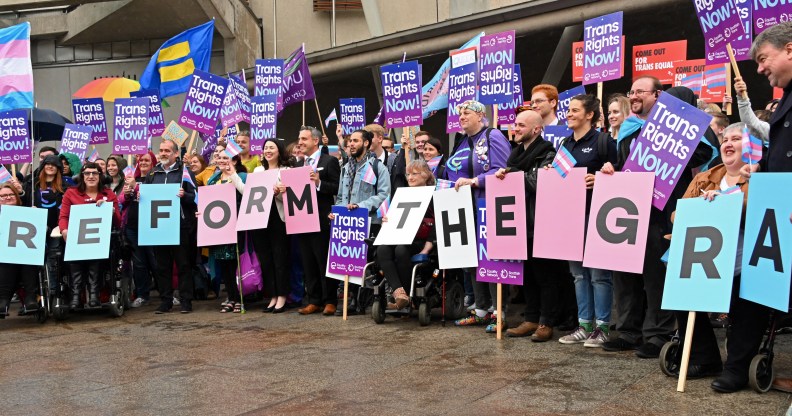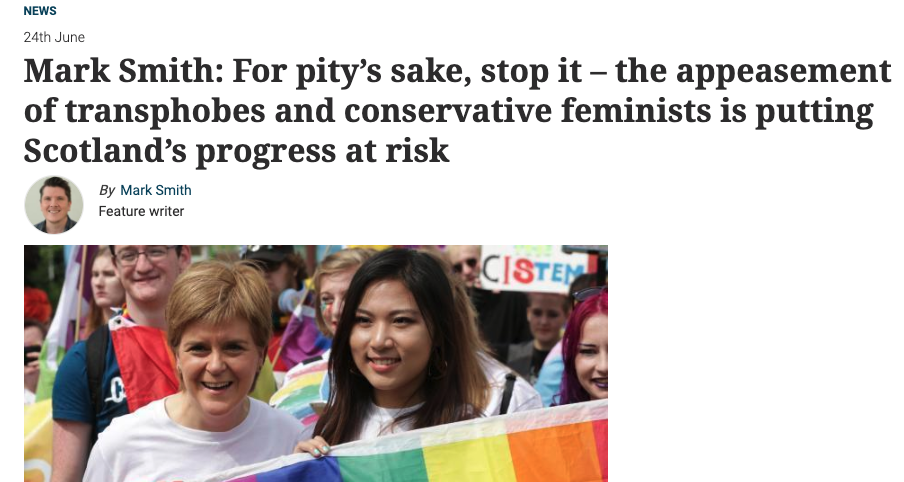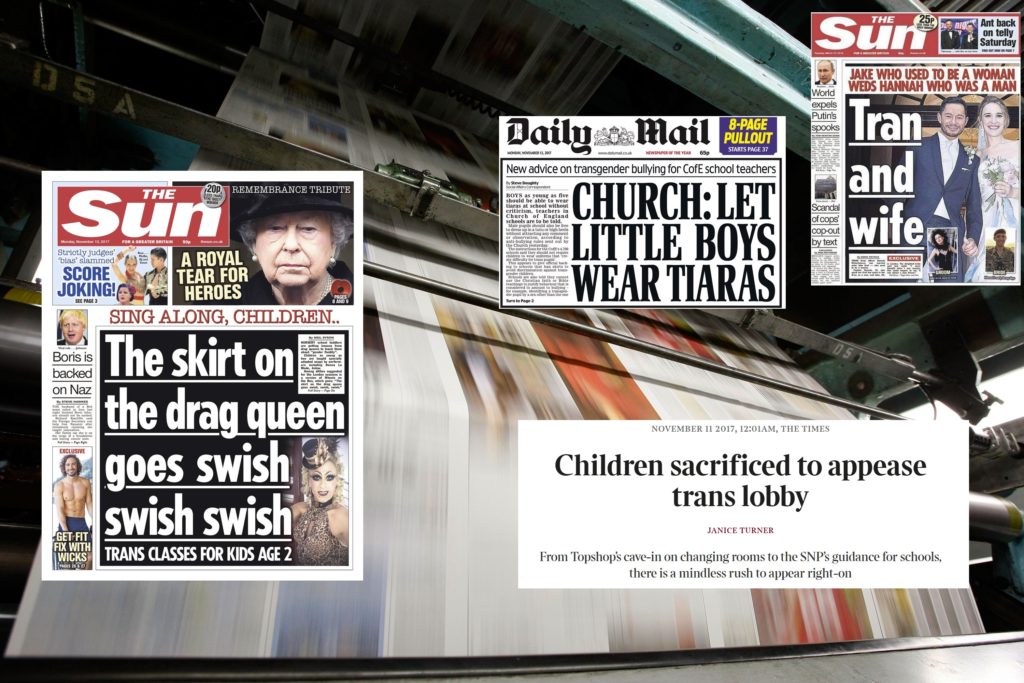Press watchdog IPSO rejects complaint against columnist who correctly stated that ‘a minority’ are opposed to trans rights

Protesters demonstrate outside the Scottish Parliament for reform of the Gender Recognition Act on June 12, 2019, Edinburgh (Ken Jack/Getty)
The UK press watchdog, IPSO, has rejected a complaint against a Glasgow newspaper columnist who stated that opponents of transgender reform represented only a “small minority”.
Mark Smith, a feature writer for The Herald, wrote a comment piece in June entitled “For pity’s sake, stop it – the appeasement of transphobes and conservative feminists is putting Scotland’s progress at risk”.
He raised concern at the delays to proposed reforms to transgender rights laws, correctly stating that opponents of these reforms “represent a small minority that has mastered the art of heckling over the heads of the majority”.
A reader, Gordon Cowan, objected to this statement. He complained to the Independent Press Standards Organisation (IPSO) arguing that Smith’s claim was inaccurate.
The Herald produced evidence to the contrary, showing that 60 per cent of 15,500 people who responded to the Scottish government’s 2018 consultation on the Gender Recognition Act had backed the reforms.
While the Scottish government didn’t provide a breakdown of the remaining 40 per cent, The Herald argued that was reasonable to infer that this ‘minority’ were against the proposal as it would be unlikely for someone to respond if their position was effectively one of abstention.

Mark Smith’s comment piece led to an IPSO investigation (The Herald)
Cowan disputed the accuracy of the government poll, claiming that it was self-selecting and had attracted responses from “vested interest groups” who were likely to respond in a disproportionate manner.
In his own evidence he cited four opinion polls which he said showed the reform was opposed by the public by margins of between three to one and four to one.
IPSO sided with The Herald, noting in its ruling that the Scottish government poll was open to all members of the public and had actually attracted responses from both opponents and advocates of the reforms.
IPSO also noted the high level of responses to the government consultation versus the “comparatively low” number of responses cited in Cowan’s evidence.
The watchdog refused to uphold Cowan’s complaint, judging that that the paper’s evidence was sufficient and the article was therefore not misleading.
Transgender issues in the media.
Earlier this year, IPSO commissioned a review into the media’s coverage of transgender issues after a number of British newspapers were been forced to correct and apologise for stories about transgender people.

British newspapers have come under fire over their coverage of transgender issues (Getty)
The research will involve quantitative mapping of coverage of transgender matters in the last ten years, as well as qualitative interviews with industry figures and trans advocates.
In a blog post, IPSO’s head of standards Charlotte Urwin wrote: “The way the media covers transgender people and gender transition can have a significant impact on individuals and social attitudes, and also continues to generate wider debate.
“It raises difficult questions about the balance between being aware of the impact of press reporting and commentary on potentially vulnerable individuals, and ensuring that it is still possible to report freely on these social issues.”
As transgender and non-binary people continue to be misrepresented in the media, the Cowan v The Herald case could set a precedent for future claims.

